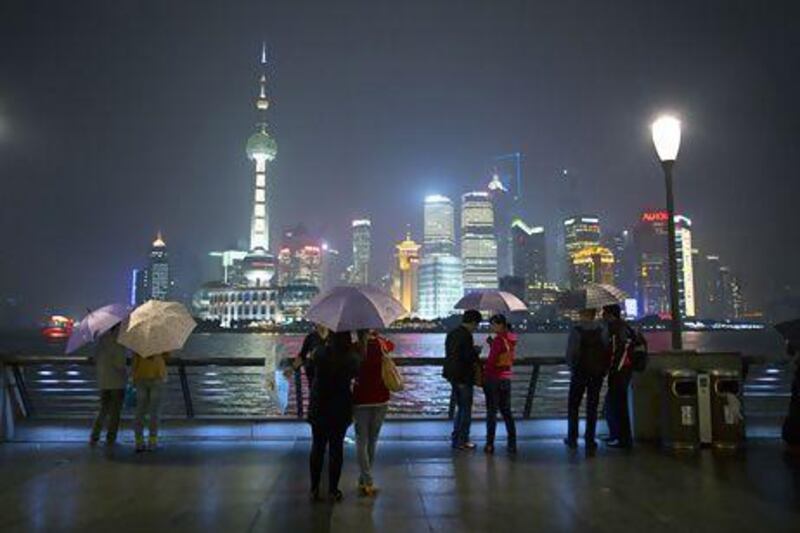Are expatriate executives in Asia an endangered species? Multinational companies from the West are increasingly finding that there are calls for local hires to fill the big jobs in the region.
The situation is increasingly notable in China. For years a closed society, China has been in desperate need of foreign expertise during the three decades and more since it started its reform process, and expatriates came in droves to work in China.
However, at the same time, millions of Chinese have gone overseas to study, and many executives spend time working for multinational corporations outside of China to hone their experience of Western working patterns.
A number of these overseas Chinese have come back to be part of the country's double-digit per cent economic growth in the interim.
This has led to a growing legion of Chinese candidates for senior positions who are as well educated as their expatriate counterparts and for whom English language skills are no longer the deal breaker they once were.
The days when an MBA stepped off a plane and into a job in a Chinese firm, barking orders in English and avoiding banquets and other cultural mainstays as unnecessary, are over.
Western companies, and of course, increasingly powerful local firms, want executives who know how to cultivate contacts with local businesses and governments, who are not lost without a translator and who are aware of how important certain cultural traditions are to doing business in China.
About 50 expatriate executives in general management roles including chief executives and chief operating officers, responded to a survey by the Association of Executive Search Consultants (AESC) and they found themselves facing more severe competition from local counterparts.
"In general, multinationals need international talent, someone who has more international experience and can quickly adapt into a new working environment and the enterprise's culture, regardless if they are from Asian or Western countries," said David Shang, a senior consultant at Jobsitechina, a company that aims to hire expatriates for companies in China.
"But if the candidates have very similar qualifications, the company prefers to hire the candidate who is from China for sure," said Mr Shang.
"In recent years, the situation has been the same for both local and overseas talent. For big companies and for senior management positions, they have very high standards and specific requirements.".
According to the AESC survey, more than a third had problems with developing a professional network, 32 per cent found the language barrier reduced their chances of executive employment and 29 per cent said the problem was rival local talent taking potential expatriate jobs.
David Guo, the chairman at Heidrick & Struggles' China unit told the China Daily that local executives were becoming more and more popular at foreign firms these days.
"It is true that some companies will emphasise they are looking for local professionals to conduct leading roles in their China offices," he said.
"Local executives are more familiar with China's market and culture while expatriate executives are stronger in international operations and communications with headquarters," Mr Guo said.
The global downturn has seen a rise in the number of expatriates seeking positions in China, to work both for local firms and for multinationals.
But nearly three quarters of respondents in the survey said that they thought it was difficult for foreign-born executives working in China to gain access to local executive positions, and 42 per cent named "employers favouring local talent" as the most inhibiting factor to finding an executive job in China.
And nearly four fifths of respondents said they saw the gap between expatriate and local executives' remuneration packages narrowing.
The AESC president, Peter Felix, said expatriate executives still have a competitive edge, and to stay ahead of the game he recommends they invest in their cultural skills, Chinese social networks and Chinese language capabilities so that they are better candidates for top management positions in either local or multinationals companies.
Despite increasing competition from local talent, the expatriate job market in China is more active than ever. More than half of the expatriateriate executives surveyed said they are looking for new opportunities, while 39 per cent of them are open to considering new opportunities.
Recruiter Spencer Stuart carried out an analysis of 1,500 placements made from 2005 to 2010, three out of four senior executives hired in Asia by multinationals were Asian natives already living in the region, and just six per cent were non-citizens from outside of Asia.
"As Asia has become a priority geography for many multinationals, companies no longer solely rely on Western executives in the region to drive the business," wrote the Spencer Stuart consultant Fabrice Desmarescaux.
"Hallmarks once considered exclusive to Western leaders - access to best practices, headquarters experience and an international track record - have become characteristics of the 21st-century Asian executive thanks to increased access to Western education, rotation programmes, as well as global work experience."
The expatriate may be under pressure in Asia, but for now, the continent remains a powerful draw.
In China, Shanghai has the largestexpatriate population on the Chinese mainland - according to government statistics, around 173,000 called the city home at the end last year, an increase of almost 7 per cent on the previous year.
And there are other barriers that are stopping expatriates getting on a plane to a new life as an executive at a Chinese company. Bad pollution means many executives are increasingly unhappy about moving to China with their families.
And there are certain structural issues too. The government's tax rules provide no incentives to hire foreign workers, and a new law requires foreign workers to pay social welfare taxes and requires employers to pay a large part of that bill too.





